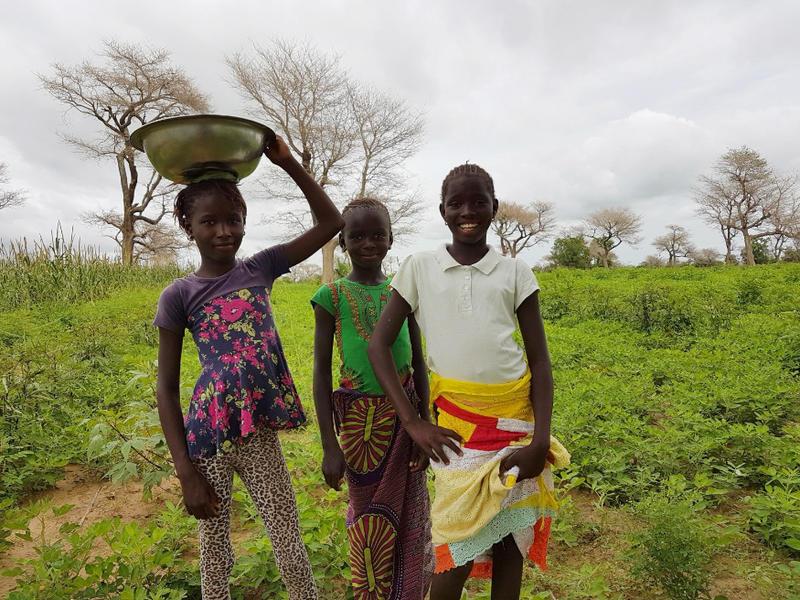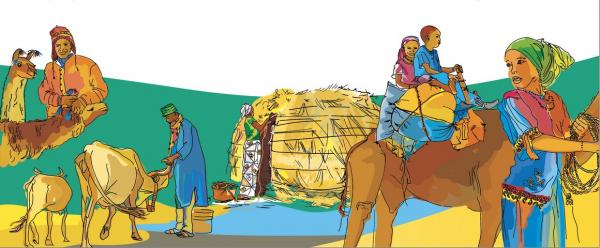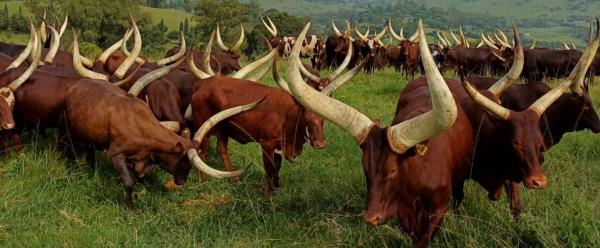Institutional news 4 February 2026
- Home
- CIRAD news
- News
- Food security | A European Union-African Union international research consortium
Food security | A future international research consortium to boost the impact of projects, under the auspices of the European and African Unions

© Cirad, C. Dangléant
In the field of food security and sustainable agriculture, there is a wide range of different research projects, partners and types of partnerships, and funding mechanisms. To optimize programme and policy coordination and facilitate talks between Europe and Africa, The EU H2020 project LEAP4FNSSA has initiated the building of an international research consortium (IRC).
Implementing the Europe-Africa roadmap for food security
The consortium will eventually associate private and public institutions (financial partners, research centres, businesses, etc) and civil society members who fund or conduct research in the field of food security and sustainable agriculture. It will operate within the framework of the roadmap that has guided European Union and African Union operations in this field since 2016 (1).
The consortium will centre on three pillars:
- Facilitating dialogue between stakeholders;
- Offering funding opportunities;
- Providing relevant information to support management, steering and foresight operations.
An entirely new knowledge management system to guarantee the impact of operations
In particular, the consortium will rely on a knowledge management system (KMS) that did not previously exist in this field, which will compile the available literature and online content on the topic of food security and sustainable agriculture.
The KMS currently includes a database of some 250 EU projects on the topic, built by the LEAP4FNSSA project.
The system, designed by CIRAD and called KEOPS (Knowledge ExtractOr Pipeline System), will give IRC members an analytical overview of that state of the art of activities relating to food security and sustainable agriculture in Africa: coverage of issues, geographical distribution of projects, data mining by country, topic, type of partnership, etc. The range of possibilities is very broad and fully adaptable to suit requirements. The aim is to fine-tune future food security operations and boost their impact.
In a similar way to the tools developed by the tech giants, KEOPS uses text mining, artificial intelligence and machine learning. In addition to its ultrafast analysis capacity, it can also supply trend indicators or spot associations between data that are not explicitly visible to the human eye.
By means of these three pillars, the IRC will serve to bring political processes and field activities closer together and to strengthen the links and dialogue between African and European institutions while including other stakeholders (scientists, farmers, experts, civil society, etc) and the range of their different viewpoints and expectations.
The consortium is currently under construction and is due to be fully operational by 2022.
The LEAP4FNSSA project
The LEAP4FNSSA project, coordinated by CIRAD, has 5 million euros of funding over four years from the European Commission Horizon 2020 programme. It associates 35 partners in Europe and Africa.
An IRC is a group of institutions, including research and innovation organizations, engaged jointly or along the same lines, in the medium or long term, in working towards a shared objective. Members join an IRC by signing a framework agreement.
Some examples of operational IRCs:
and one that is under construction: CIRCASA (soil carbon sequestration in agriculture).
(1) The roadmap towards a jointly funded EU-Africa research & innovation partnership on food and nutrition security and sustainable agriculture centres on four priority topics:
- sustainable intensification,
- agriculture and food systems for nutrition,
- expansion and improvement of agricultural markets and trade,
- cross-cutting issues (project coordination, capacity building, support of innovation processes, etc).



























